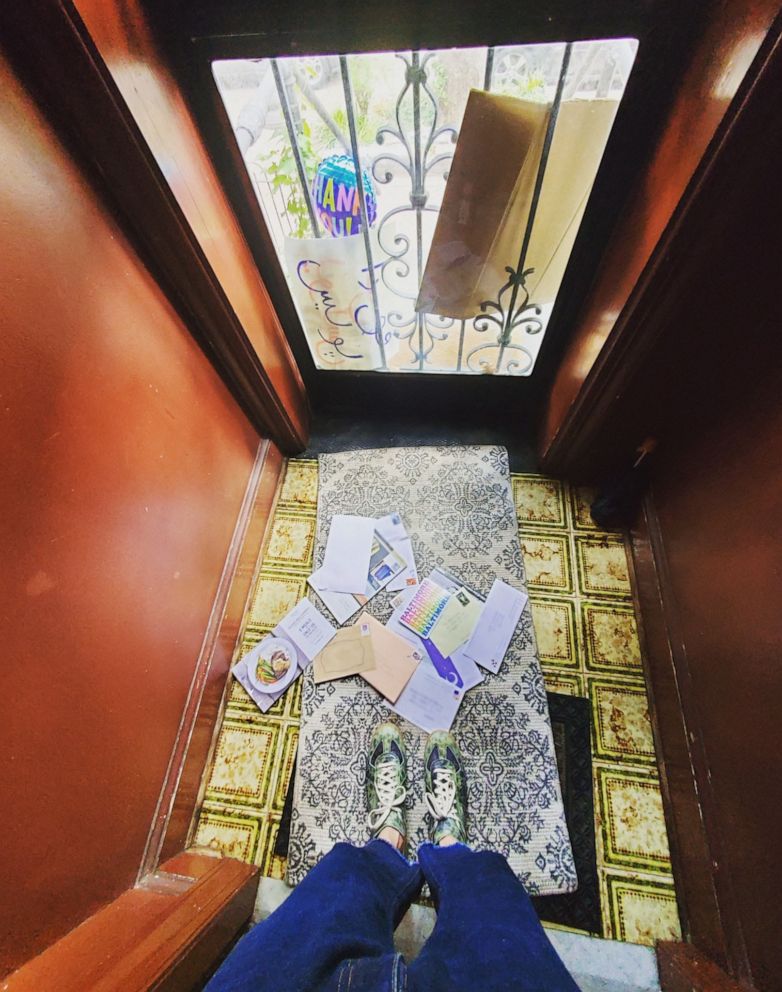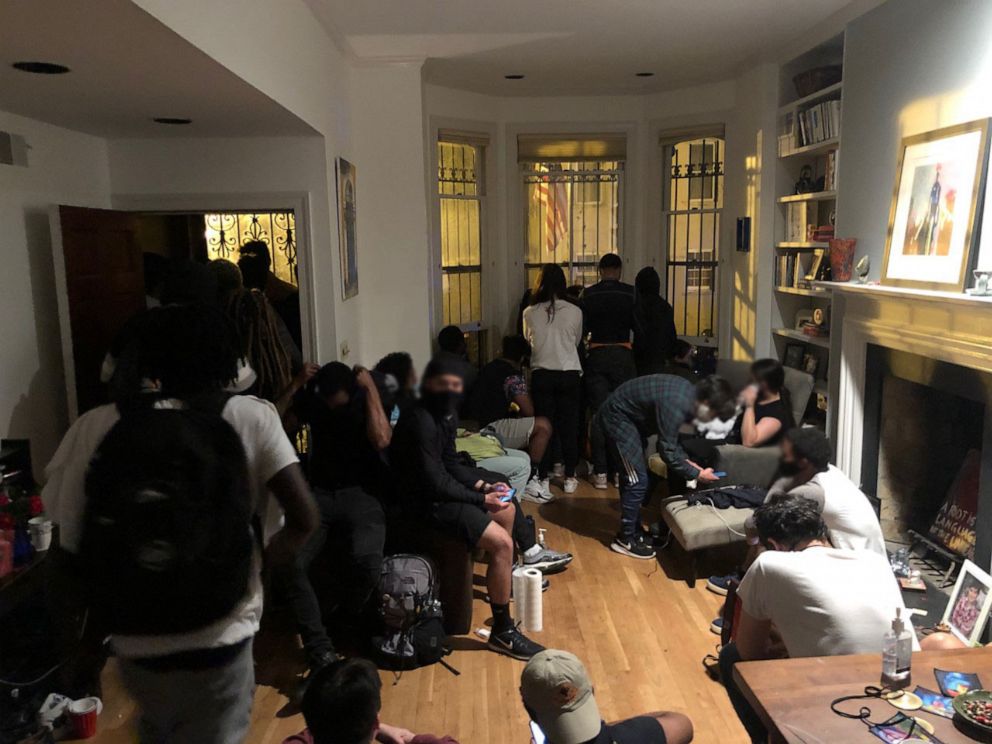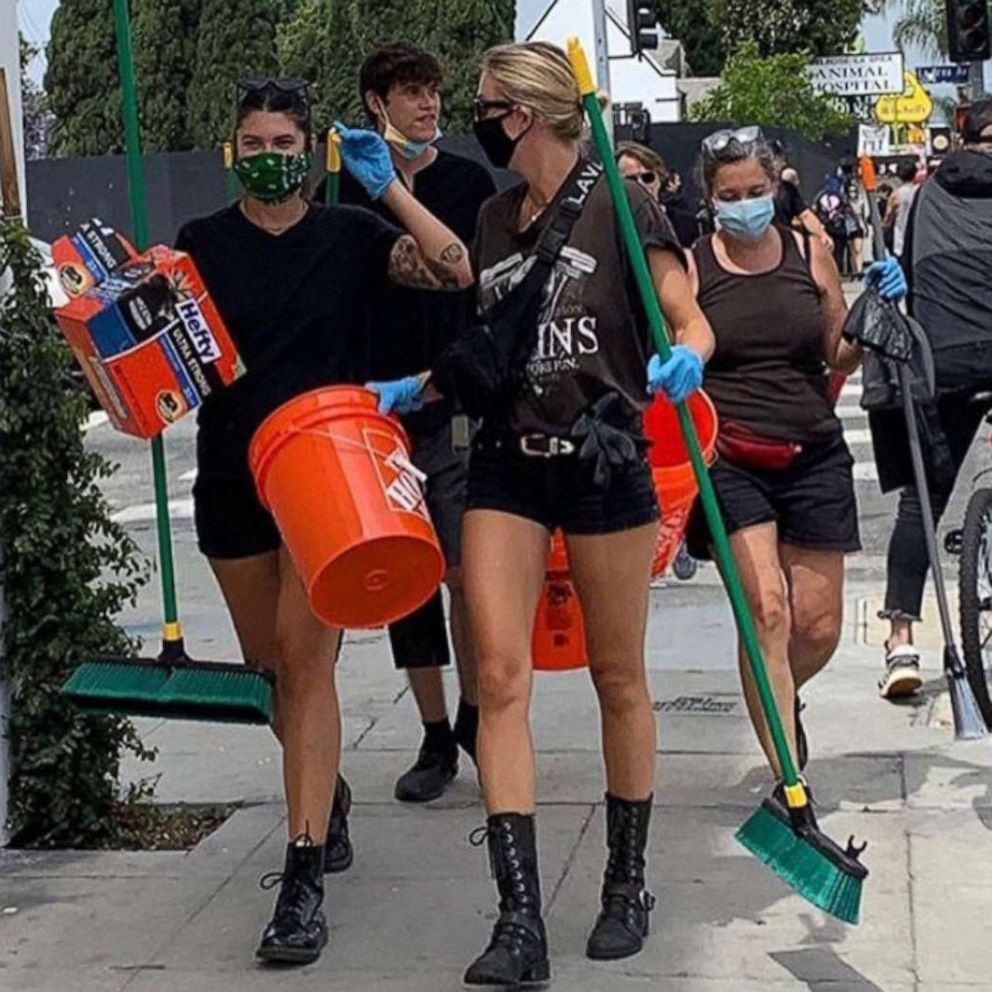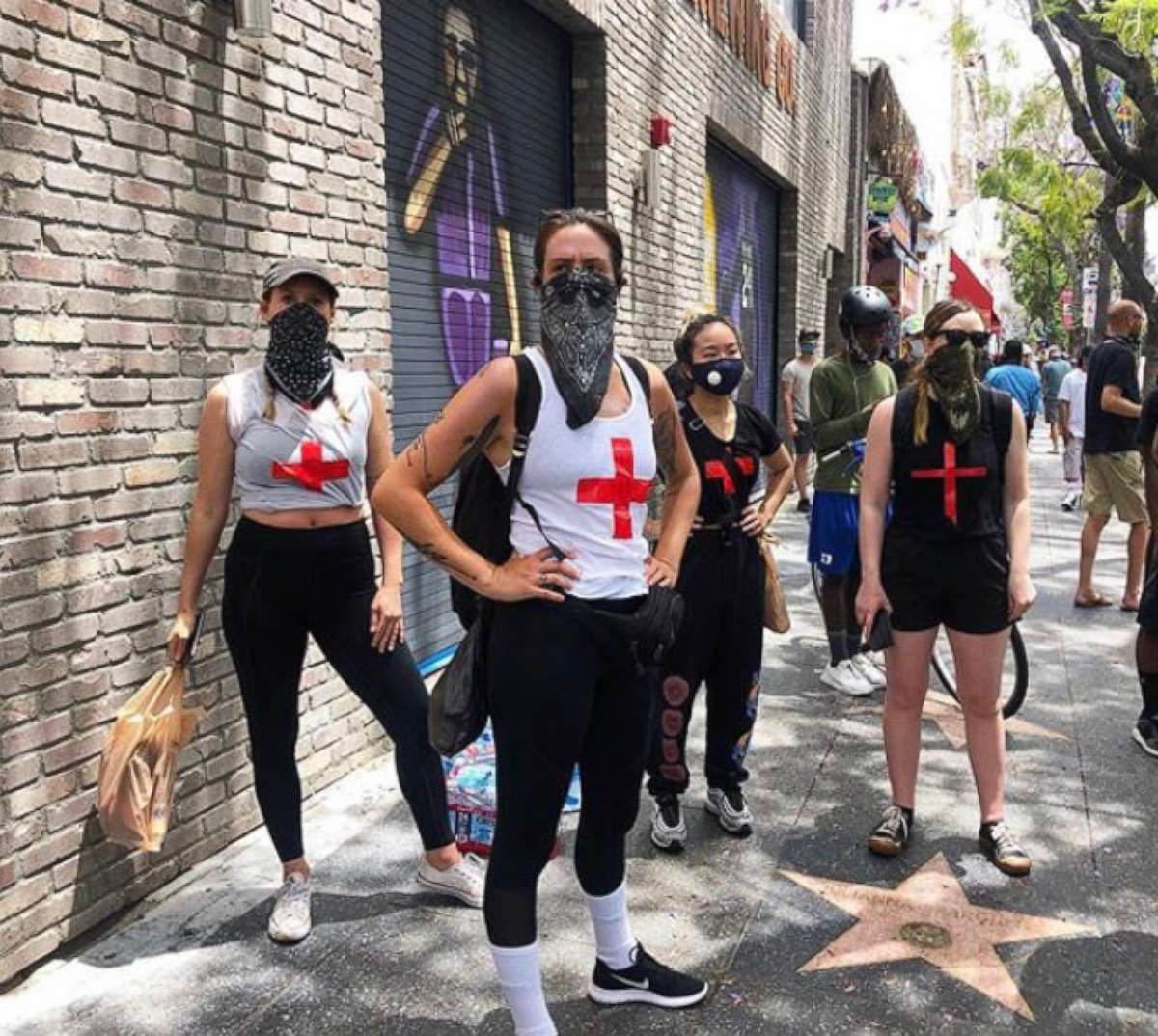The quiet army supporting Black Lives Matter protests
Stories of those helping fuel the Black Lives Matter movement.
As mass protests continue across the United States nearly three weeks after George Floyd's death, a quiet army of supporters has been mobilizing to help aid demonstrators marching in the streets.
Whether it's feeding, housing or driving protesters home, some say they're using whatever resources they have to help move the needle forward and support the Black Lives Matter movement.
For Rahul Dubey of Washington, D.C., that meant sheltering over 70 fleeing protesters in his home on June 1.
Dubey offered his home as a safe haven after he said he witnessed a large group of protesters being pepper sprayed and beaten to the ground by police officers. He said he was also hit with pepper spray.

Dubey said that's when he started yelling, "Get inside, get in the house," before protesters, many of whom were complete strangers before that night, started piling up and aiding each other and checking in with family and friends to tell them they were safe, he added.
The 44-year-old Indian American admits that that night was the catalyst for igniting his passion for the movement and showing his support as an ally in whatever way possible.
"It took for that to happen for me to get fired up," Dubey told ABC News.
The healthcare innovator and son of immigrants who has lived in the nation's capital for nearly two decades, believes that the night proved the power of working together.

"There was an eight-and-a-half-hour period . . . where I saw humanity at its finest that I've never seen in my entire life," Dubey said.
Since then, not only has he received dozens of flowers and handwritten thank-you notes, he said, from around the world, but he said he has also remained in touch with many of the activists.
"Everyone did a little part of opening the door . . . bringing us milk and snacks ... What's your moment of opening the door going forward?" Dubey said.
For Lizzy Ashleigh, playing her part in the Black Lives Matter movement means driving around protesters and ensuring that they get home safely. Ashleigh, a ride-share driver in New York City, said that she's committed to playing her part, whether that means calling to pinpoint protestors' exact location or just offering a listening ear for riders to share their stories.
Ashleigh, a Brooklyn native and music artist, said that prior to the pandemic, she was planning to perform across several cities before she took up driving full time to help pay her bills. She said that while she's come across people from all walks of life while on the job, including racists who have openly expressed their views inside her car, she is determined to keep going.
"The movement in general is needed to awaken so many minds to the systemic racism that's been happening for years," Ashleigh said.
Ashleigh said that one of her riders' stories that really touched her was a 16-year-old girl she drove home, who claimed she was violently tossed and handcuffed to the ground by police during a protest in the tri-state area.
"She had so many questions ... She was still hurt, but I think I made her feel better," Ashleigh said.
Another wave of support for protesters has included several organizations opening their lobbies for restroom breaks, phone charging and cooling stations.
From New York City's Signature Theatre to the Shakespeare Theatre Company in Washington, D.C., dozens of theaters across the country have opened their doors as part of the #OpenYourLobby campaign on social media. For some businesses, that meant intentionally reopening after being closing for months amid the coronavirus pandemic.
"Stop by the Calderwood Pavilion now until 6 p.m. if you need a snack, drink, the restroom, or just wanna see a friendly face. #OpenYourLobby #BlackLivesMatter #Boston," the Huntington Theatre Company in Boston wrote on Twitter.
For Aaron Sternberg, his support of the movement includes organizing with "Feed The Streets LA," a group that started over five years ago to offer food and hygiene products for the homeless.

The group is aiding Black Lives Matter protesters across Los Angeles by offering demonstrators water or those who are injured assistance from volunteers with a medical background. Additionally, they have been helping the community rebuild after some businesses were destroyed.
"We saw this need for protesters, so we came together and started fundraising and thought about the ways we could support the people who are out in the streets," Sternberg told ABC News.

Sternberg, a Los Angeles native who's been working alongside the team for two years, said that he's using this opportunity as a chance to "support and learn as much as I can as a white person."
"I grew up in the valley, I was very privileged ... I just know that it's now my time to talk and be there to support. I think that this movement is rolling through our nation and helping wake a lot of people up," Sternberg said.




